How do we feel when leaders cry?
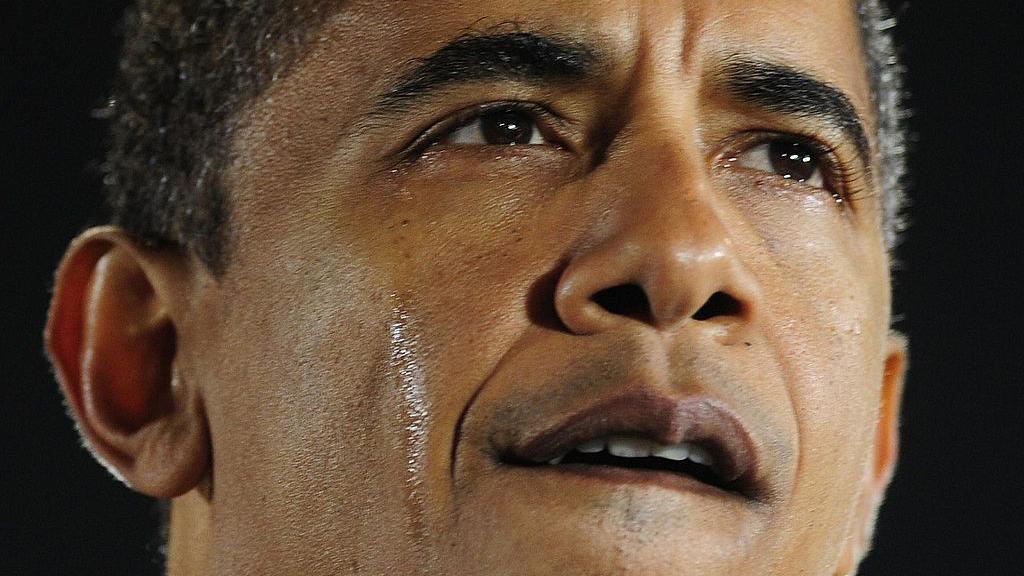
President Obama wept in public while speaking about his grandmother during a rally in 2008
- Published
For many, the idea that men don’t cry is something of an outdated notion - but what about our political leaders?
On Wednesday, Wales first minister Vaughan Gething was seen in tears in the Senedd ahead of a no-confidence vote he went on to lose.
He joins a long line of leaders, from Churchill to Obama, who have wept in public.
Are leaders who cry openly seen as more human and authentic, or is it interpreted as a sign of weakness?
Guto Harri, former No 10 director of communications under then-prime minister Boris Johnson, said leaders showing a bit of humanity was to be highly recommended - to a point.
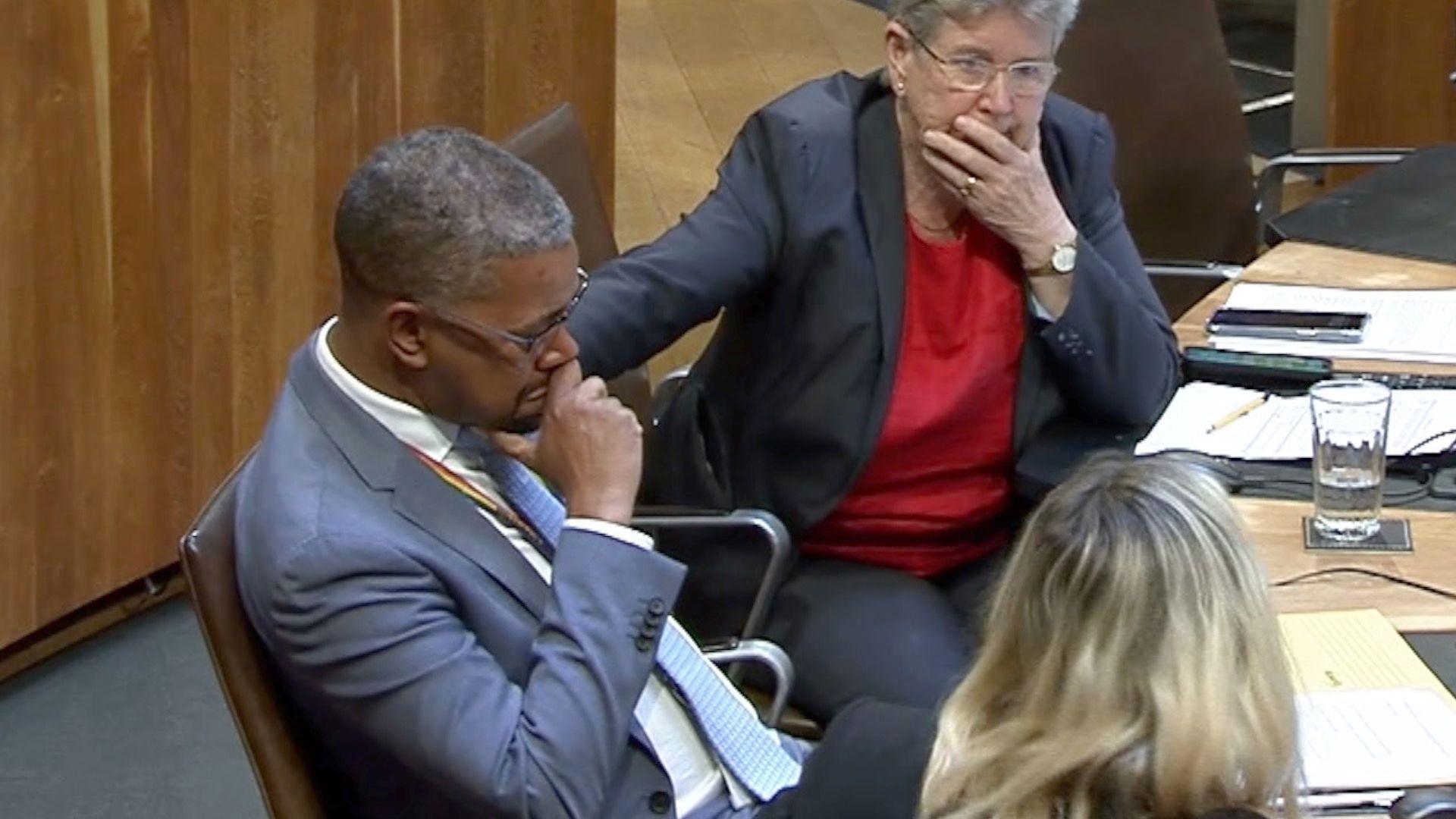
Mr Gething was comforted in the Senedd by Welsh government Chief Whip Jane Hutt as he cried
"People want you to be in touch with your feelings and emotionally intelligent," he said.
"But the brutal reality is the very definition of leadership rather excludes the idea that you are weak - and the association with crying in the chamber, no matter how compassionate we are, is ultimately at a deep Darwinian level associated with lack of strength."
Mr Harri said the single most important thing for any politician was to was be authentic.
"People who are not naturally charming can look really creepy when somebody tells them to smile - someone like Gordon Brown or Theresa May to a certain extent," he said.
"The more extreme examples are Ed Miliband trying to eat a bacon sandwich or William Hague trying to be down with the kids on a fairground log-flume and with a baseball cap. These are all examples of politicians who have suffered horribly for trying to pretend to be something they’re not."
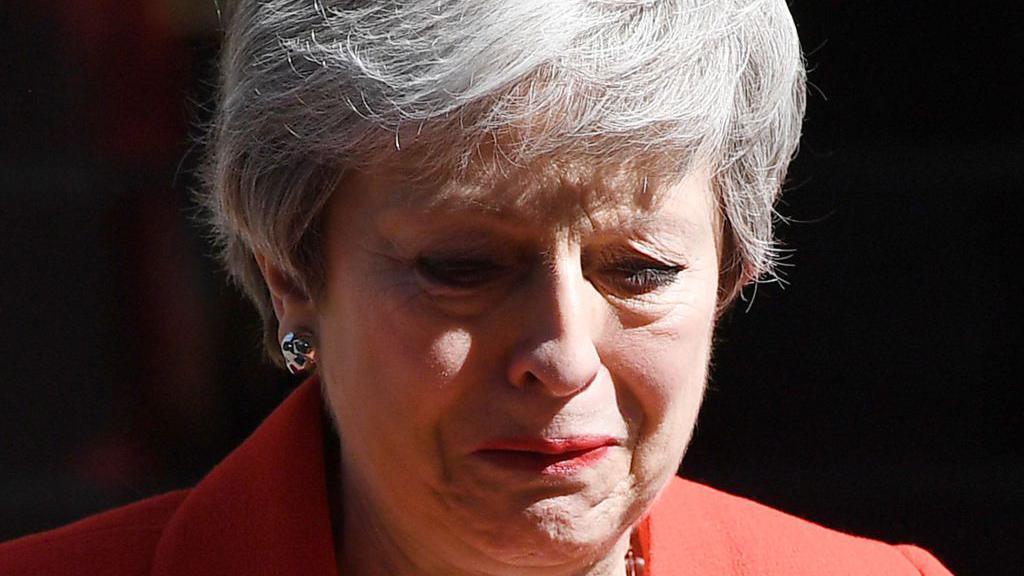
In 2019 Theresa May wept as she announced she was resigning as prime minister
A number of leaders in and outside of politics have been caught on camera weeping.
Winston Churchill was known to cry in public.
The late Queen was seen wiping her eyes as her beloved yacht was taken out of service in 1997, and again at a 2019 Remembrance Sunday service at The Cenotaph.
Then-chancellor George Osborne was tearful during the ceremonial funeral for Margaret Thatcher in 2013.
President Obama was moved to tears on several occasions during his presidency, including after the 2012 Sandy Hook massacre and watching Aretha Franklin perform in 2015.
And In 2019 Theresa May wept as she announced she was resigning as prime minister.
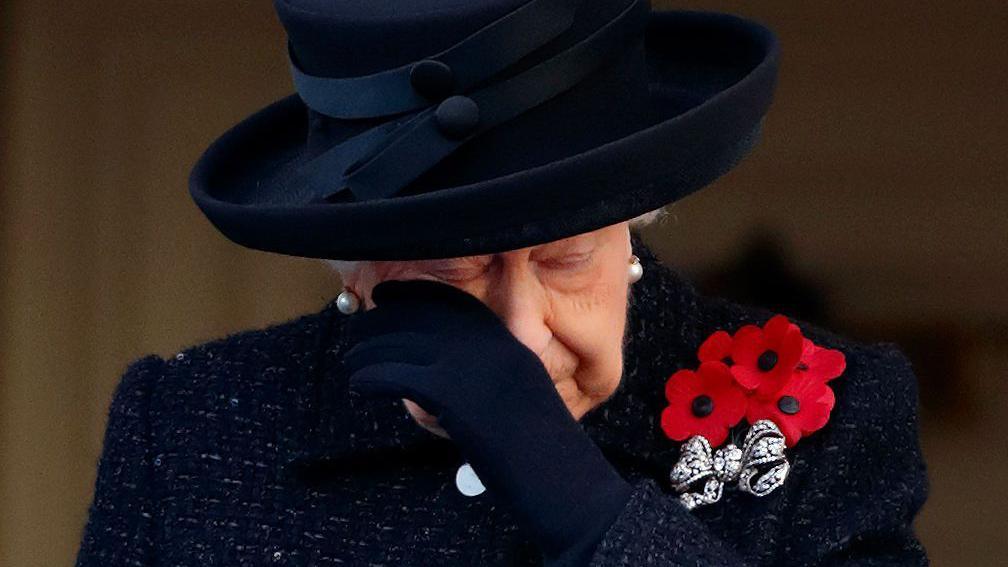
The late queen Elizabeth II wipes away a tear at a Remembrance Sunday service at The Cenotaph in 2019
Social media was quick to react to the video showing Mr Gething being comforted by Welsh government Chief Whip Jane Hutt and his dabbing away tears with a tissue.
It prompted accusations online of crocodile tears, crying because he’s been caught, and embarrassing himself. He even faced sexist remarks that he was "crying like a little girl".
But Mr Harri believed the tears were genuine, adding the emotional toll of such situations could not be underestimated,
"I saw Boris toppled very up close and personal and it’s a brutal, unnerving, distressing moment but that was largely behind closed doors with him," he said.
"[Vaughan Gething] realised sitting there that he’d messed it up, blown it, and that’s extremely painful to come to terms with."
He said with crying in public there was "always the risk people think you’re faking it and trying to get sympathy".
"That is a desperate, desperate act in politics and in any walk of life - if you’re being dumped by a partner and you appeal for pity then you’ve played your last card and it’s not a powerful one," he added.
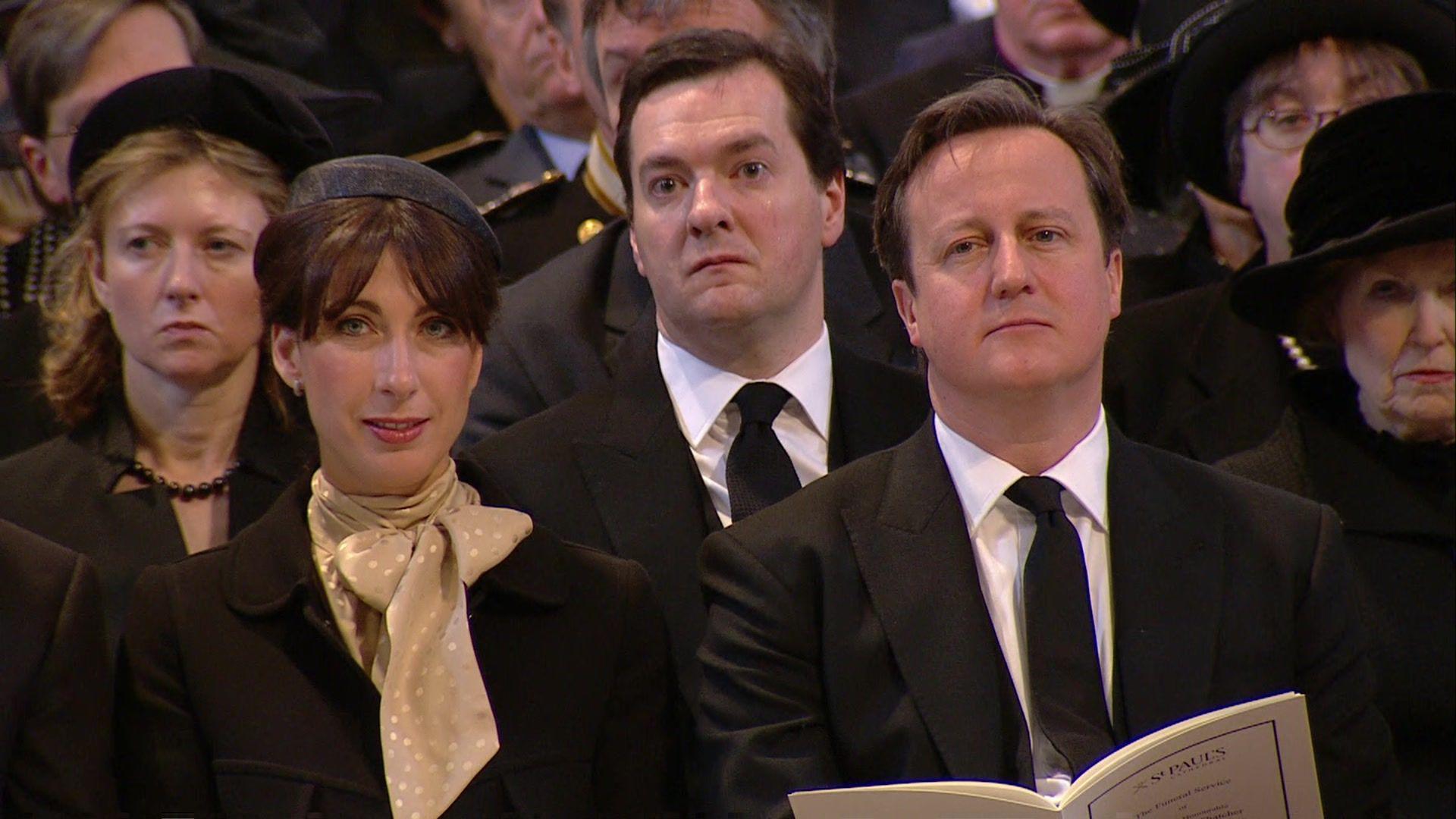
Then-chancellor George Osborne (centre) was tearful during Margaret Thatcher's funeral in 2013
Attitudes towards crying in public have changed several times throughout history, external, said Bernard Capp, an emeritus professor at the University of Warwick's department of history and a fellow of the British Academy.
"There’s been a kind of pendulum swing, so in some periods like Ancient Greece and Rome or in the English Middle Ages men were very open with their emotions, including crying, as well as rage and anger," he said.
"In other periods such as the Renaissance period, the 18th Century and around the early 20th Century, it has been a case of stiff upper lip and expectations of self-control."
He said today people were more open to public shows of emotion recently in areas such as politics and sport.
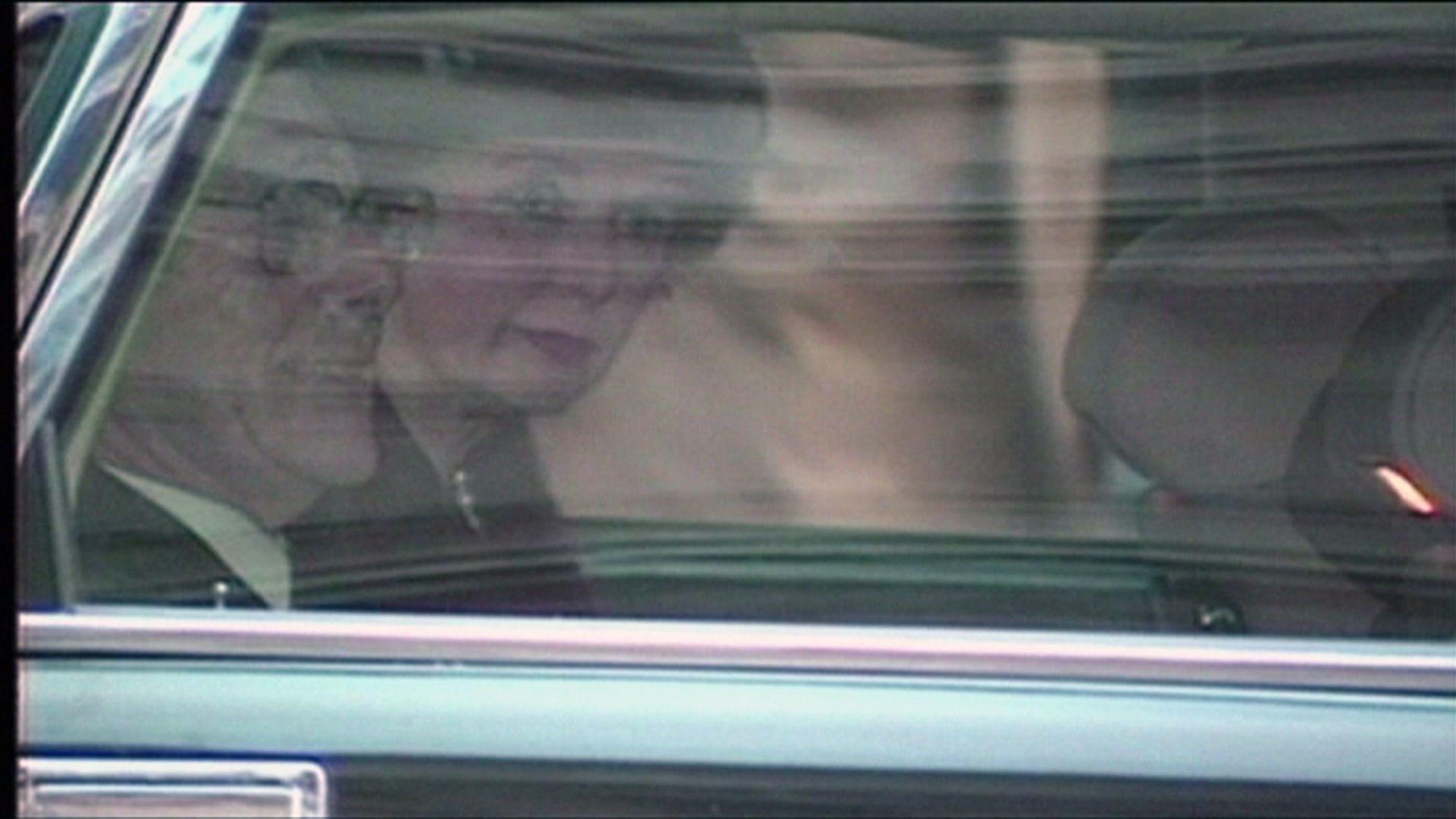
Margaret Thatcher was tearful in the back of a car when she left No 10 for the final time in 1990
"It would be unthinkable for a top business executive to shed tears if he was driven out by a boardroom coup, but in politics both Thatcher and Theresa May shed tears when they were leaving office… and so did Winston Churchill in the House of Commons and when visiting bomb sites in the Blitz," he said.
He said Mrs Thatcher and Mrs May were "both mortified" after crying when leaving office.
"[David] Cameron made a point of humming a tune when he announced that he was resigning to signal that he still had complete self-control," he added.
The reason for the crying is crucial to how is perceived by the public, he said.
"With the Vaughan Gething case it was very much self-pity and that’s not so acceptable... many of the elderly D-Day veterans [on Thursday] were in tears but they weren’t crying for themselves, they were crying in memory of their fallen comrades."
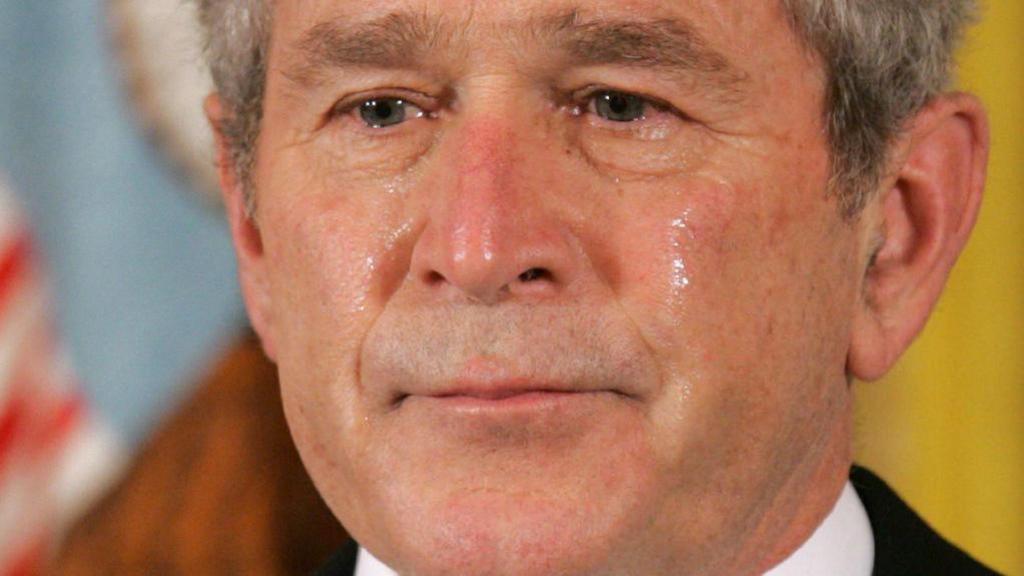
Former US President George W. Bush cried during a ceremony awarding a posthumous Medal of Honor to US Navy Petty Officer 2nd Class Michael A. Monsoor in 2008
Mark Borkowski is a crisis PR consultant who works with international celebrities and big corporations.
He said if he was advising Mr Gething following his public cry he would say "don't hide it, look to exploit it but don’t lean too heavily on it and find better ways of expressing authenticity".
He said the British public had become more open to seeing emotion from leaders.
"Politicians once upon a time had to show strength and zero vulnerability... but we are human, we are vulnerable, we make mistakes and the world accepts that there is no perfection - but there is honesty," he said.
He said the issue now was "how to move forward", adding: "We always say there is an opportunity in a crisis."